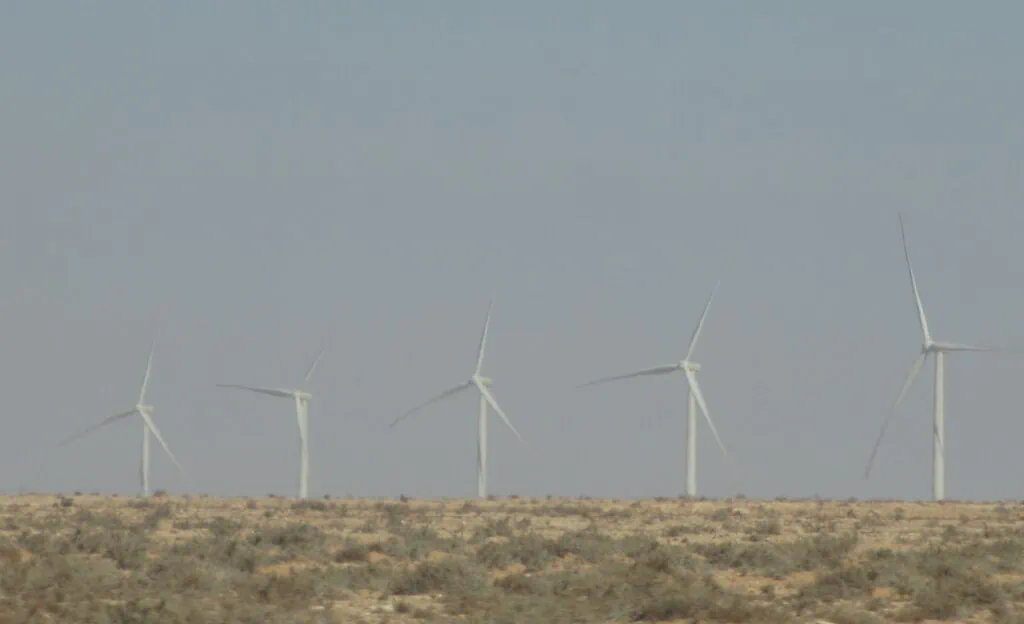Hitachi Energy - Dirty business with clean energy

Swiss-based Hitachi Energy is involved in projects in occupied Western Sahara, furthering the conflict over the former Spanish colony.
Morocco's plans for renewable energy are ambitious and commendable. By 2030, half of the country's electricity is to come from renewable energy. However, wind turbines and solar plants will not only be installed on Moroccan territory, but also in the occupied Western Sahara. Hitachi Energy and its predecessor company ABB are involved in two wind projects there so far.
Criticism of annual general meetings
In the Western Sahara, numerous renewable energy projects are being developed with the support of international companies. What is worthy of support at first glance turns out to be problematic at second glance. The projects are being carried out against the will of the affected Sahrawi people. The German company Siemens, which along with the Italian company Enel and the English company Windhoist is significantly involved in wind projects in the Western Sahara, has been criticized for this for years at its annual general meeting.
Swiss-based power technology producer Hitachi Energy is also involved in at least one project, the AFTISSAT II wind farm. Hitachi Energy emerged from a joint venture between ABB Power Grids and Hitachi. Already the company ABB participated in a wind farm in the occupied territory.
Geopolitical and economic interests
In the process, infrastructure projects contribute to maintaining the occupation. The UN has been trying since 1991 to implement the self-determination referendum agreed upon by Morocco and the Frente Polisario. However, it remains blocked. The geopolitical and economic interests of European countries in particular are too great. The situation is further complicated by the fact that a company owned by the Moroccan royal family, Nareva, is involved in the wind energy projects. As long as the latter profits from cooperation with foreign companies in the occupied territory, serious interest in holding the agreed referendum is unlikely.
That is why Hitachi Energy's involvement in the occupied territory is helping to perpetuate the conflict in Western Sahara.
Other Swiss companies also do business in Western Sahara. For example LafargeHolcima cement factory, Volg sells tomatoes from the occupied territory and again and again Swiss companies are involved in the transport of fish or phosphate from Western Sahara.

